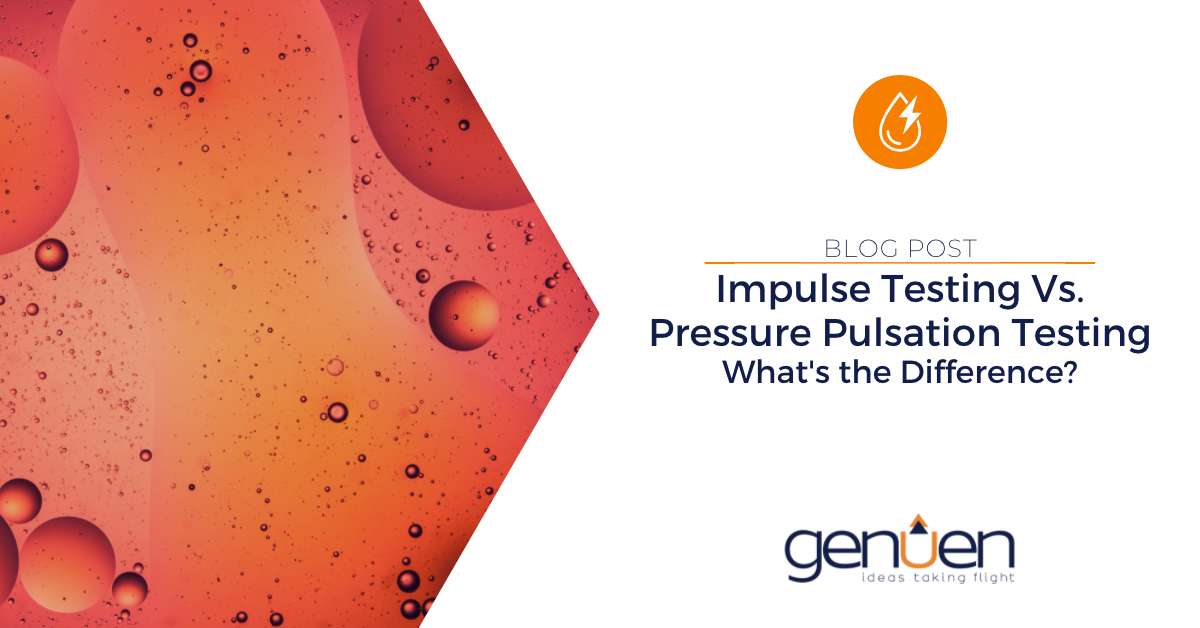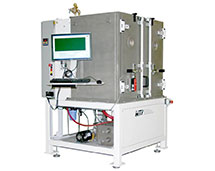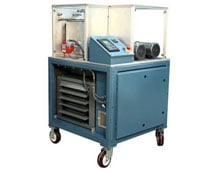Each month we receive multiple requests for “pressure cycling test stands”. The first question we ask of our customers is: “Are you looking for an impulse test stand or a pressure pulsation test stand?”
This question is generally followed by a long pause and their response: “What’s the difference?”
This then leads us to the next question: “Is the test closed-ended or open-ended?”
Here comes the second long pause.
While not intended to be a white paper or in-depth discussion, the goal of this article is to simply outline our definitions and how we internally separate and market the two systems within the Genuen line of servo hydraulics products. Future articles will go into greater depths of the test parameters and specifications of each these two product lines.


Figure 1: Genuen High-Pressure Impulse/Burst Test Stand
Years ago, while developing our core product lines of servo-hydraulic test systems, our engineering team looked for industry-accepted definitions for these types of systems, but couldn’t seem to find a hard rule of what separates a fluid power impulse from a pulsation. These terms seem to be interchangeable and are solely dependent on the requesting source, manufacturer, or the test specification being referenced. The following explains how we’ve determined our definitions of the two system types.
Let’s take the second question first: “Is the test open-ended or closed?” We consider a unit under test (UUT) functional requirement to be “open-ended” when the test requirement is that a specific volume of fluid must be constantly flowing through it while the inlet pressure is being varied at a predetermined, precise, and repeating pressure waveform. Conversely, if the UUT is only being subjected to an input pressure waveform, with no throughput flow, we consider it to be a “closed-ended” test.
The first question seems to be clearer if we consider the function of an open-ended test vs. a close-ended test. We can now define an open-ended test as a constant fluid flow with varying pressures, which can be related to the blood flow through our bodies and the pressure fluctuations being our pulse, or a pulsation system. Based upon Webster’s definition of “an impulse as the product of the average value of a force and the time during which it acts”, a close-ended test then becomes an impulse-based system. Or in other terms, as we all strive for in our lives, impulses seem to be quick acting, intense, but (hopefully) short-lived.
This now leads us to our definition separating the two systems:
A close-ended test is an impulse test system and an open-ended test is a pressure pulsation test system.

Figure 2: Genuen Portable Impulse Test Stand
Our test stands range from small portable carts to very large combination test stands which can complete several test functions. Each system is designed to meet your specific test requirements and budget.
A Genuen System Requirement(s) Analysis
Genuen’s engineering application team can provide a system requirement(s) analysis to help you determine the best system to meet your testing requirements. This includes defining a system to meet your current and future lab testing life cycles. This may include a dedicated impulse or pressure pulsation test stand, a combination test stand including burst pressure testing, dual- or multiple-fluid systems, multiple-station test and/or automatic UUT selection/isolation fixtures, or any specialized design per application solution you may need.
As always, we welcome any suggestions of our blog articles to better support our customer’s requirements. For more information on hydraulic servo-based test systems, please contact Genuen Technology for detailed specifications or quotations to meet your testing requirements today.


